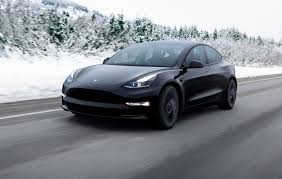With its beautiful landscapes, vibrant culture, and even warmer people, Jamaica has been a favorite destination for many, but it is now charting its way to a sustainable future with the introduction of electric vehicles (EVs). As concerns about global warming and a need to reduce carbon footprints continue to grow, the island nation is making significant moves to incorporate EVs into its transportation system. Electric Vehicles in Jamaica: The good, the bad, and the ugly.
The State of Electric Vehicles in Jamaica
The development of Electric vehicles in Jamaica has been a growing trend for some time now. The government, the private sector and environmental advocates have all played a key role in pushing this transition. While the number is still a small percentage of the total vehicle population, the Ministry of Transport and Mining previously disclosed that there has been steady growth in the use of EVs on Jamaican roads.
Jamaica’s effort to promote EV adoption is part of its Vision 2030 National Development Plan, which seeks to make the country a land of sustainable prosperity. To convince consumers to adopt, initiatives like duty exemptions on EVs imports, and pushing of charging structures have also been introduced. Major players in the automotive market, such as ATL Automotive and Stewart’s Auto Sales, have launched a variety of EV models, giving Jamaicans more choice.
Electric Vehicles in Jamaica: Environmental and Economic Benefits
Transitioning to electric vehicles presents many benefits for Jamaica:
Decrease in Greenhouse Gas Emissions Transport remains a staple source of greenhouse gas emissions in Jamaica. EVs, using renewable energy such as solar and wind, can significantly decrease the country’s carbon footprint.
Less Expensive to Operate: EVs have a lower operating cost than traditional internal combustion engine vehicles. They have fewer moving parts with lower maintenance needs, which provides long-term savings for consumers.
Energy Independence: Importing fossil fuels is a drain on Jamaica’s economy. Transitioning to EVs, along with increased adoption of renewable energy, can bolster energy security and reduce dependence on oil imports.
A Powerful Allied Twinning of Renewable Energy Investments: EVs create a symbiotic relationship with renewable energy adoption. Jamaicans would also drive investments in Jamaica’s green energy sector with solar or wind energy-powered charging stations.
Electric Vehicles in Jamaica: Challenges to EV Adoption
Nonetheless, while positive, the prospects for widespread EV penetration in Jamaica are also impeded by:
High Initial Costs: The up front cost of electric vehicles is still a hindrance for many Jamaicans. While duty concessions do help, EVs are still seen to upwards of be expensive than a normal vehicle.
Insufficient Charging Infrastructure: EVs depend heavily on a comprehensive network of charging stations for their viability. There have been investments in this area, but coverage remains spotty, particularly in rural areas.
Public Awareness and Perception: A large number of Jamaicans are unaware of the advantages and operational aspects of EVs. It will take educational campaigns to combat misconceptions and gain consumer trust.
Grid Capacity and Stability: Jamaica’s electricity grid will need to be ready to accommodate the demand from EVs. Investments in grid modernization and renewable energy integration are also essential.
Electric Vehicles in Jamaica: Govt. Initiatives & Supports & Policy
The government of Jamaica has shown its support for EV adoption. Key initiatives include:
Tax Incentives: Tax exemptions on EVs and related equipment, as well as reduced import duties, have increased their availability for consumers.
Development of Charging Infrastructure: Partnerships with private companies to set up charging stations across the island are being developed, with a particular emphasis on urban centers and major highways.
Leading by Example: The government is putting more and more EVs into its fleet to encourage the private sector and public.
Legislative Frameworks: Initiatives to shape EV standards, safety regulations, and the deployment of charging stations.

Private Sector and NGO contributions
In Jamaica, other crucial stakeholders that have spearheaded the EV movement are private companies and non-governmental organizations (NGOs). Organizations are advocating for improved transportation options and companies such as JPS (Jamaica Public Service Company) are investing in pilot projects for charging stations. Public-private partnerships are increasingly critical in overcoming challenges and fostering innovation.
Electric Vehicles in Jamaica: The Road Ahead
Electric Cars in the land of wood and water: The way forward These are some key areas to focus on:
Scale Renewable Power: Expanding the nation’s renewable power pipeline will help ensure EVs are a truly green solution.
Emerging Charging Networks: More stations should put an end to consumer range anxiety.
Ev Measures: Further import duty cuts, subsidies or financing measures can help EVs reach a wider cross-section of society.
There could also be efforts for education and advocacy like public awareness campaigns that highlight the environmental, economic, and health benefits of the use of electric vehicles as part of the electric utility tariffs.
Conclusion
Electric Vehicles in Jamaica, a new journey to adopt the electric vehicle is to be the example of its commitment to sustainability and innovation. And, though challenges endure, the government, the private sector, and citizens can join forces to accelerate this transition. Jamaica Embraces Electric Vehicles: Jamaica (and other small island nations) have no choice.. Electric vehicles protect our Natural Resources, Jamaica among other small NSO’s take it to an even greater level.



Pingback: Electric Vehicles in Jordan: Driving Towards Sustainability - Tech Master Online